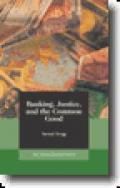


The New York Times is not known to be the most reliable or mentator on matters religious, but a recent Times article (marred, unfortunately, by a couple of inaccuracies) highlighted that France’s claim to have separated religion from the state is only true in parts. French cities and the countryside are dotted with beautiful churches, but few realize that the state is responsible for the physical upkeep of many of them. This is a legacy of the famous (or, infamous, depending on your perspective) 1905 law – Loi du 9 décembre 1905 concernant la séparation des Églises et de l’État – in which a militantly anti-Catholic French government unilaterally abrogated the Concordat of 1801 and ended state-funding of religious groups (which meant, in overwhelmingly Catholic France, the Catholic Church).
But it didn’t quite cut all the ties. As part of the 1905 law, the French government declared that all then-existing religious buildings were the property of the state (specifically, local government), thereby legalizing the greatest theft of private property owned by a religious organization since Henry VIII’s dissolution (or, more accurately, government-sanctioned sacking, pillaging, and destruction) of the monasteries. Unlike King Henry, however, the French state allowed Catholics to keep using these places of worship and even today maintains their upkeep – something that lends itself to all sorts of mischief-making on the part of politicians.
A good example of this was highlighted in the Times article which reports that a beautiful 19th century church in the town of Gesté in the province of Anjou is scheduled for demolition because the local council has decided that it is too costly to maintain and cheaper to build a new one. But many opposing the council’s decision say that it has nothing to do with government budgets and everything to do with trying to reduce local unemployment.
Given the state of much post-1960s church architecture, it’s likely that the new church will be just as hideously ugly as most other churches (of any confession) built since 1960. The wider point, however, is that it should surely be up to the local bishop and the parish itself as to whether to renovate the church or build a new one. Instead, the choice has been made by Gesté’s local council, of whom one can safely presume a good number (even in the still very Catholic province of Anjou) are not believers or haven’t darkened a church door in several decades. Christians presumably would not expect to have a say in the building or demolition of the local Communist party headquarters, feminist collective, or Masonic temple. Yet in France if the local village atheist gets elected to the local council, he is henceforth in a position to make decisions about the fate of many houses of worship.
Such are the perils of government funding for churches – or mosques or synagogues for that matter. Inevitably, one’s independence is unjustly circumscribed.









